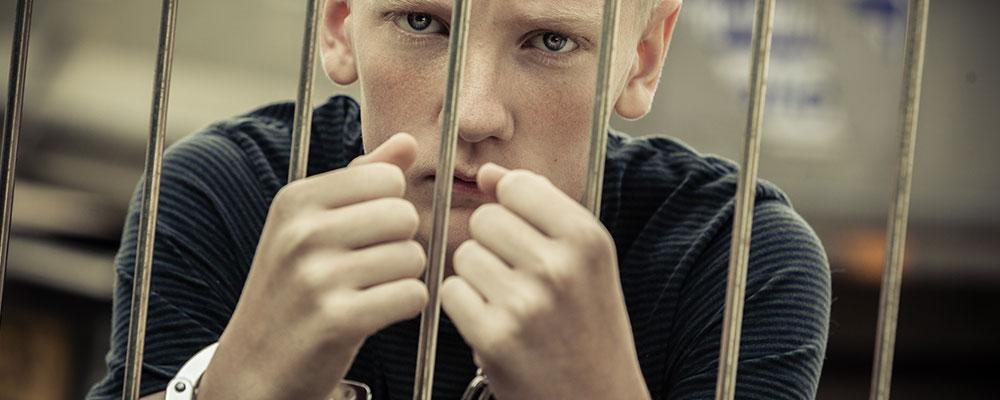Will County Juvenile Delinquency Lawyer

Juvenile Defense Attorney Serving Joliet, Plainfield, Romeoville, and Bolingbrook
No parent wants to get a call from the police saying that their child has been picked up for theft, drug possession, or worse. If this happens to you, swift legal intervention is critical. The assistance of a lawyer experienced in juvenile and criminal defense in your county will be invaluable.
Honiotes Law Office, Ltd will act quickly and decisively to protect your child's legal rights and their future. Attorney Kristine Honiotes is a skillful criminal defense lawyer with 14 years of experience that includes 9 years as a Will County public defender. She has successfully defended her clients against serious charges ranging from drug possession to homicide. You can rely on attorney Honiotes to guide you and your minor child through the juvenile justice system with compassion and to advocate strenuously for a positive outcome for your child.
Solving Problems and Minimizing Harsh Penalties in Juvenile Court
Attorney Honiotes understands that juvenile offenses often stem from teenage struggles with peer pressure, drinking, drugs, and mental health problems.
She has worked extensively in special problem-solving courts dedicated to helping people solve these underlying issues rather than simply penalizing them for their crimes. Her experience includes working in the Will County Drug Court, where she was part of the team that developed the Heroin Relapse Prevention Protocol.
You can count on Ms. Honiotes to handle your child with sensitivity but also talk straight with them.
Minimizing Your Child's Exposure to the Legal System
At Honiotes Law Office, we understand the importance of minimizing a minor's involvement in the juvenile justice system.
Although Illinois passed a new law in 2017 that is intended to improve the confidentiality of juvenile justice records and automatically expunge, or erase, most juvenile records within two years of a case being closed, the more records that are created by different agencies, the greater the chance of old accusations coming to light in the future.
We offer both juvenile and adult records expungement services to ensure that our clients can move forward in life with a clean record, to the extent allowed under Illinois law.
Understanding the Illinois Juvenile Justice System
If your child has been arrested for breaking the law in Illinois, here are some important things you need to know about Illinois criminal law as it applies to juvenile delinquents (705 ILCS 405).
When Minors Will Be Tried in Juvenile vs. Adult Court
A minor under the age of 18 who breaks the law in Illinois will be processed through the juvenile justice system rather than the adult criminal courts with three exceptions:
- Juvenile violations of traffic, boating, and fish and game laws are handled through the adult court system but in accordance with juvenile confidentiality and detention rules.
- A minor at least 16 years old charged with any of the following crimes will be tried as an adult: first degree- murder, aggravated criminal assault, or aggravated battery with a firearm where the minor personally discharged a firearm.
Illinois Juvenile Justice Procedures and Juvenile Delinquency Terminology
Juvenile offenders have essentially the same civil and procedural rights as adults, except that juveniles generally do not have the right to a jury trial. Minors also receive many special protections, such as where and how long they may be held in custody.
- When a juvenile is arrested for a violation of law, a juvenile police officer may agree to impose an informal station adjustment or a formal station adjustment rather than turning the case over to the State's Attorney for prosecution. Both the minor and their parent or guardian must agree to this.
- When a juvenile matter is referred to the State's Attorney and a decision is made to prosecute the offender, the prosecutor files a delinquency petition in juvenile court rather than filing adult criminal charges.
- If an out-of-court plea agreement is not made, there will be a bench trial before a judge. Previously this was called an adjudicatory hearing, but the term trial is now used.
- A minor who pleads or is found guilty at trial is adjudicated delinquent, not convicted of a crime. This will be followed by a sentencing hearing, previously termed a dispositional hearing. Illinois law favors sentencing juveniles to community-based programs that allow minors to reside at home, with secure confinement ordered only for minors who present a danger to the community.
- In juvenile sentencing, judges must consider mitigating factors such as the minor's age and level of maturity, history of childhood abuse or trauma, history of delinquent or criminal behavior, the circumstances of the offense and the minor's degree of participation, the minor's potential for rehabilitation, and whether the minor has expressed remorse.
- Illinois law specifically allows the court to issue orders to parents including paying some or all of the expenses associated with the case and care of the juvenile.
A Will County Juvenile Defense Lawyer with Both Skill and Compassion
At Honiotes Law Office, Ltd, we are committed to helping juveniles get their lives back on track. Contact our Joliet office at 815-409-7833. We serve clients in DuPage County, Kane County, Kendall County, Grundy County, and Will County including the cities of Joliet, Plainfield, Bolingbrook, and Romeoville.





